Peter’s main role was to offer practical advice and maintenance for the solar powered electric fences that are used to protect the crops from elephants.
Here he provides us with more information about his experiences and what he found when working in India:
“Before I left for Assam I had a good idea of what activities I’d be getting up to while I was there. I was really looking forward to getting stuck in and helping where possible! It was my job to provide the villagers with any assistance and offer my advice on how to maintain the electric fences and spotlights that are used to protect the villagers-crops and homes from elephant encroachment.
“Prior to the expedition I prepared a presentation on basic electrical theory with the aim that this would help improve skills and further the villagers’ knowledge. I also packed a selection of tools to take with me-including electric fence testers-multi-meters and general hand-tools. I made sure I was well equipped.
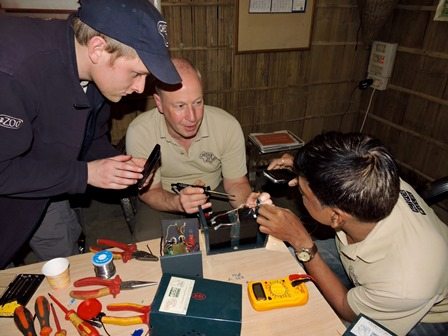
“The change in climate wasn’t a big shock to me – as I’d been lucky enough to travel to this part of the world before-so I had an idea of what to expect. The cities were really busy and hectic but in the remote areas life was more relaxed. I also felt the climate was comfortable and not too humid-it was the winter season – although saying that-it’s nothing like the winters we have here in the UK! Temperatures were still reaching around 30 degrees.
“The workshop I put together included a presentation providing a basic electrical course and an electrical fencing guide-which was then followed by a practical session. I think those who attended the workshop enjoyed it and I did get asked quite a few times about how to test the output voltage on an electric fence – so it was a good job I packed my electric fence testers!
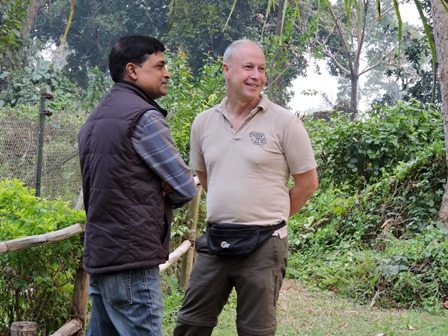
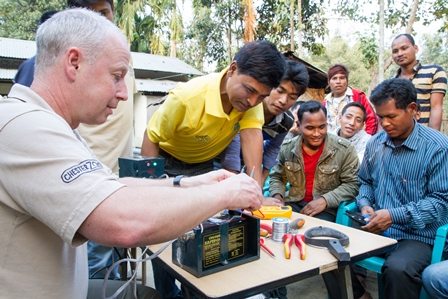
“On top of that we carried out repairs on the electric fences-spotlights-chargers and torches in each of the villages. We also spent some time checking the batteries – inspecting their levels-cleaning the terminals and looking over the general condition of the electric fence line. Just by doing these simple checks meant that the fences could continue to give 100% output-keeping the elephants away from the crops and out of the villages.
“It was really satisfying to know that I was helping others simply by sharing my skills. The people I spoke to were extremely keen to learn more about the electric fence testing and general electrical maintenance skills. The problems and issues which the villages came to me about were mainly to do with the different electrical equipment they had that wasn’t working.
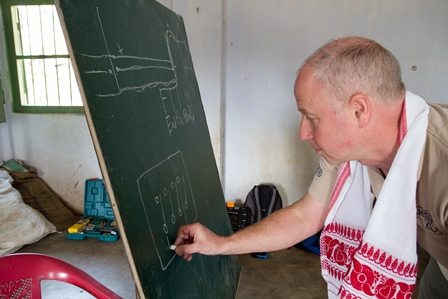
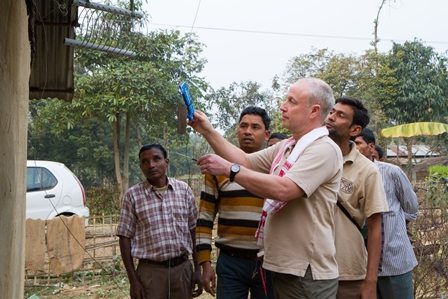
“Seeing the work Chester Zoo’s Assam Haathi Project does first-hand makes me realise-even more-just how important it is. This project is not only protecting elephants but it is helping to give people a better quality of life.
“A full day of visiting various villages-running presentations and repairing different faults on electrical equipment was really fulfilling. It was nice to meet up with the rest of the group after a hard day’s work and reflect on our experiences – we were often treated to a cultural dance from the locals-and on some occasions a rice beer!
“It was really rewarding to see how this project is helping to improve the quality of life for the villagers-and also knowing that this has a huge impact on the welfare of elephants.
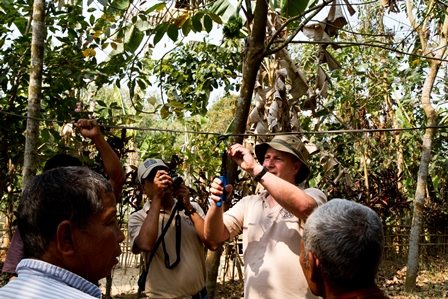
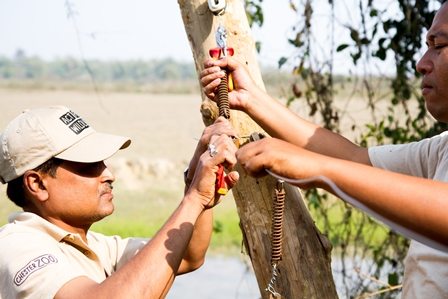
“The expedition was everything I expected it to be and seemed to be a great success. I really hope some of our knowledge and skills have been passed on.”